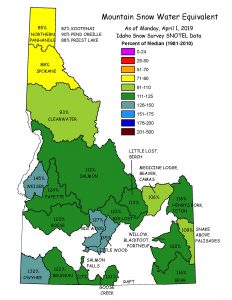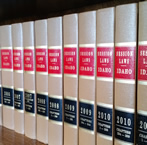IDWR conducts two general types of hearings:
- public hearings — All interested parties may participate.
- contested case hearings — Only designated parties may participate as full parties.
Generally, both hearing types are conducted by a hearing officer who is appointed by the IDWR Director.
Hearing Officer
The hearing officer is “neutral” in a contested case matter and hears both sides of the contested matter. However, the hearing officer can consider only certain criteria which has been established by law in contested matters—even though other matters of concern may exist to the parties.
Procedures
In a contested case hearing, parties may represent themselves or may choose to be represented by legal counsel. The hearing is electronically recorded which serves as the official record. Testimony of witnesses must be given under oath and may be cross-examined by opposing parties. The hearing officer allows redirect testimony and re-cross examination of the testimony. Exhibits may be introduced and offered for admission.
In administrative hearings, the strict rules of evidence are relaxed. The applicant generally has the burden of proof and proceeds first with its presentation including testimony of witnesses and offered exhibits. Following the applicant’s presentation, the protestant(s) may present their case including testimony of witnesses and offered exhibits.
The hearing officer has an obligation to create an orderly hearing record while at the same time providing full opportunity to the parties to be heard and present their case. The hearing officer will not continue the hearing to allow parties to obtain exhibits or to gather witnesses which the parties did not think they might need.
Official Record
The hearing officer “officially notices” certain information such as the application, past decisions of the department, water right records, reports, well driller reports, water measurements, and flow records. An Official Notice means that the information noticed becomes part of the record without the necessity of having that information specifically offered as exhibits in the hearing. This notice results in a more time efficient hearing.
The hearing officer generally pre-marks proposed exhibits prior to the start of the hearing. Hence, parties do not need to pre-mark exhibits. Parties must bring to the hearing a copy of each proposed exhibit for the hearing officer and for every full party in the proceeding.
Recommended & Final Order
After the hearing, the hearing officer issues a “Recommended Order” based on the evidence and testimony presented at the hearing. Any party in the matter may file a “Petition for Reconsideration, Exceptions, and Briefs” in connection with the Recommended Order.
After reviewing and considering the filed petitions, exceptions, and briefs, the IDWR Director issues a “Final Order.” Any party may file a petition for reconsideration of the Final Order and may seek review of a Final Order in district court.
Terminology
Reducing or restricting the use of surface or groundwater based on priority date.
A request from a water right holder for the administration of water rights under the prior appropriation doctrine. See IDAPA 37.03.11 for more detail.
A document submitted by a junior-priority groundwater right holder and approved by the Director (as provided in Rule 043) that identifies actions and measures to prevent, or compensate holders of senior-priority water rights for, material injury caused by the diversion and use of water by the junior-priority groundwater rights holders within an area having a common groundwater supply. See IDAPA 37.03.11 for more detail.
Statutes & Rules
Idaho Constitution
Idaho Statute
- Title 42: Irrigation and Drainage — Water Rights and Reclamation
- Title 43: Irrigation Districts
- Title 46, Chapter 10: State Disaster Preparedness Act










